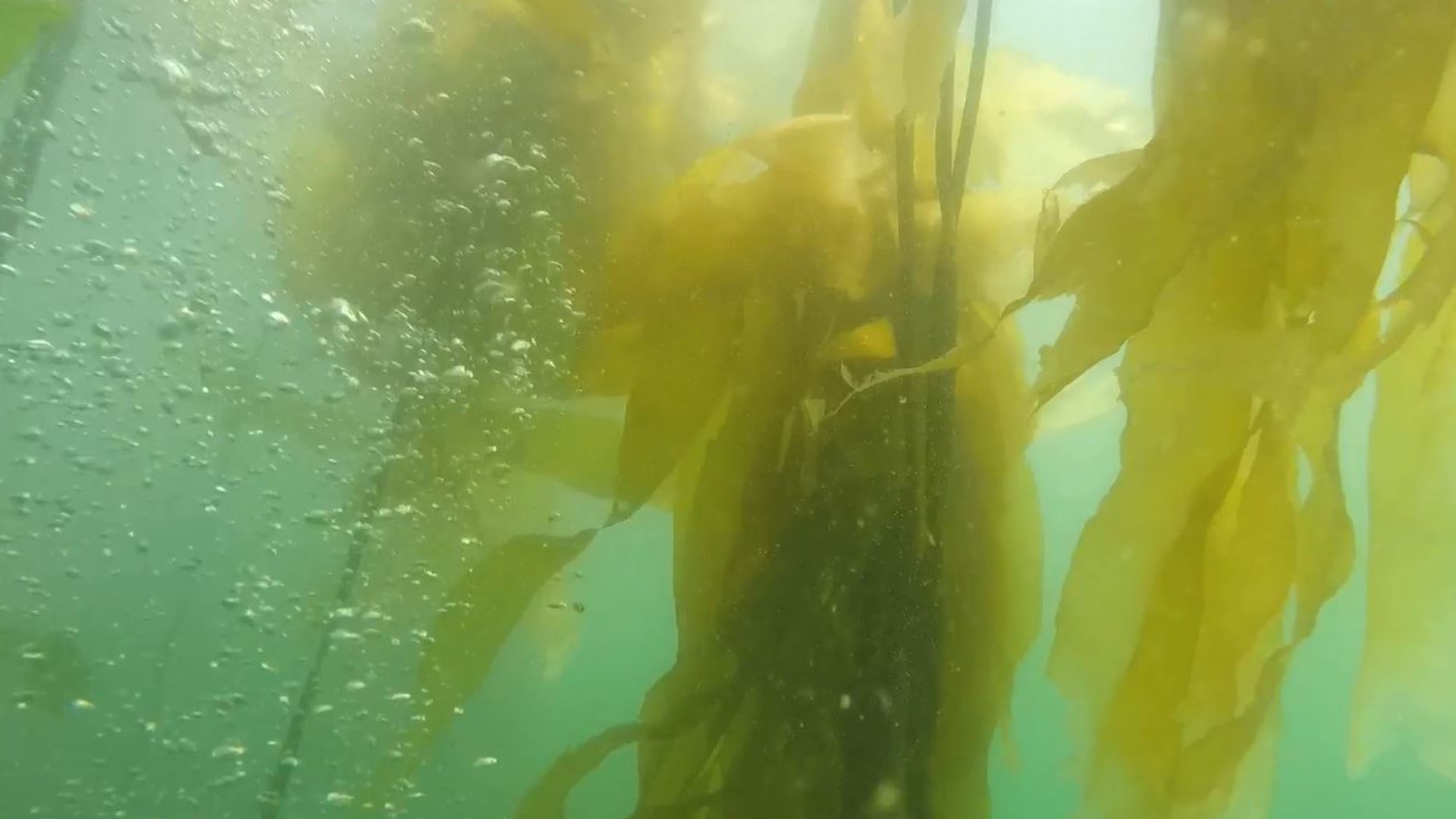SEATTLE — An undersea expedition to a mysterious world beneath the waves has come to West Seattle's Lincoln Park. It's just one stop on a week-long mission to help understand and save one of our area's most important natural resources, its kelp forests.
"Most people are unaware of it," said Helen Berry of the Washington State Department of Natural Resources.
"Kelp forests are an underpinning for all of our food systems, for our cultures, for our way of life here," added Betsy Peabody, executive director of the Puget Sound Restoration Fund.
But the Salish Sea's Bull Kelp has been disappearing at an alarming rate.
"In the last 150 years, we've lost about 80% of our kelp forests," Berry said.
That's bad news for the sea life that depends upon it, up and down the food chain.
"From forage fish to salmon and ultimately to orcas," Berry said.
Researchers are teaming up with government agencies, nonprofits, local tribes and volunteers to measure and study this vast undersea habitat, using aerial photography, satellite imagery and drones.
"Taking lots of samples to try to characterize the environment," Peabody said. "The temperature, the pH of the water, inside and outside the bed. We had a team of divers that were doing underwater ecological monitoring."
Tom Mumford, the marine biologist they call "Captain Kelp," has had his eye on this endangered habitat longer than just about anyone.
"How do you get people to care? How do you get people to really wake up and go, 'This is important.' We need to be paying attention to it,'" Mumford said.
The stakes are incredibly high.
"The consequences of losing it, I think, are going to be more serious than people think," Mumford said.
Kelp beds provide hatching grounds for marine life, and they're the breadbasket of Puget Sound.
"Kelp can grow many feet a day," Berry explained. "It rivals, say, an alfalfa field, just in terms of the amount of food it provides to the ecosystem."
But with rising sea temperatures, it will take a worldwide effort to save these cold water ecosystems.
"I think we can do it," Mumford said.
This is more than just an expedition in search of answers. It is also a journey of hope.
KING 5's Evening celebrates the Northwest. Contact us: Facebook, Twitter, Instagram, Email.

